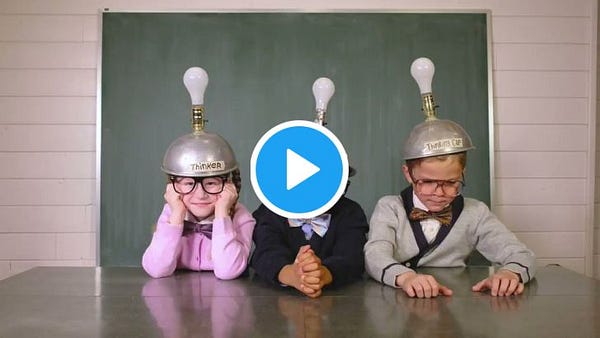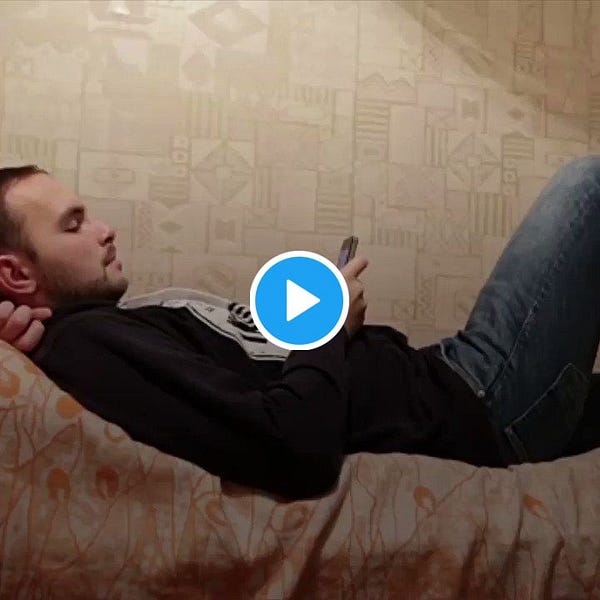One Simple Way to Move the Inclusion Needle
It doesn't need to be complicated to start advocating for authentic inclusive education.

I love the beginning of the school year. Each year is brimming with promise. Like the opening day for Major League Baseball or the first game of the National League Football season. The possibilities are endless, and it is much easier to have a positive attitude.
But there are some families and educators that are anxious about the first days of school. Especially if they have been fighting for inclusion and haven’t gotten very far.
For inclusionists, questions about why their school or district hasn’t moved farther along with inclusive practices keep them up at night.


Perhaps you are in this situation, where it feels like you have been trying to get your school or district to become more inclusive and it hasn’t gone anywhere. Where does this leave you?
Recently on The Think Inclusive Podcast, I shared what our followers thought was the biggest barrier to inclusive education. Here are some of their answers:
General education teachers needing behavior support
The exceedingly slow pace of systemic change
Authentic buy in from general education teachers
Lack of training or knowledge of current research
Just being heard
Funds / Financial limitations
Ableism
Pressure to “prove something” just to be included
Not being taken seriously. Feeling the eye rolls. No support from the administration.
Unaddressed biases towards people with disabilities
Lack of support for children who need more
Other parents of peers not understanding what inclusive education is
Do these resonate with you? What do you think is holding you back from having a more inclusive school or district?
So, what can you do if you find yourself in this spot?
Here is one thing you can do right now to help move the needle toward inclusive practices. Ask people what they mean when they say “inclusive education.”
For some administrators, inclusive education is something that is done in certain classrooms (i.e., the “inclusion classroom” or having “inclusion teachers” in a certain grade level). For others, it may all be about the percentage of time students with disabilities are in general education classrooms but not necessarily about natural proportions or neighborhood schools.
So here is your homework—yes, there is homework.
Ask your teacher, administrator, or school leader, what they think “inclusive education” means.
Let’s see if we can get the discussion going. And next time on the Weeklyish, we will discuss some of the most common indicators that show your school or district really is inclusive
The whole month of August, the Maryland Coalition for Inclusive Education (MCIE) is raising money to help fund technical assistance for schools and districts, student-centered planning meetings, system-wide transformation for inclusive education, and communications outreach through Think Inclusive.
Imagine if we all started having conversations about authentic inclusive education in schools! What if this is the year that we really start to see the needle move toward inclusive practices across the country?
Please consider donating any amount to MCIE to help us continue our work to promote and sustain inclusive education.
Annual Report
Without a doubt, the past year was a difficult one. But, despite the difficulties, MCIE still took amazing strides to make inclusive education a reality for students with disabilities by working with schools and districts across the country.
And we want to share our accomplishments with you! None of this would be possible without your support.
Download the PDF of our Annual Report to learn about our impact this past year.
ICYMI
Britney Spears’ Story Isn’t Rare; It’s Common in the Disability Community
There's a problem when outcome measures promote "passing."
The Think Inclusive Podcast | Marilyn Friend | Co-Teaching
In The News
Many students with disabilities lost out on services during COVID, some schools are trying to make up for the lost learning.
Funding community-based services and ending subminimum wages are on the agenda of the Biden Administration.
To mandate or not to mandate. Teacher’s unions have their say about vaccinations.
The indie film, “CODA,” stars three deaf actors, and it was just sold for a record-breaking $25 million.
What I’m Reading

What I’m Watching
I guess I’m a pushover for musical comedies. SMH.
What I’m Listening To
What’s in my Timeline


From the Wayback Machine
9 Inclusive Education Resources to Share With School and Community Leaders
If you don’t already live in a school district that prioritizes inclusive education, advocating for your child or students can be an uphill battle. We get a number of messages for recommendations of resources to share with “decision-makers” in school districts and community leadership. While we already have a resource that highlights 100 of the best inclusive education links, sometimes a large list like this can be overwhelming.
Here are 9 resources you can share with school and community leaders to advocate for inclusive practices in your neck of the woods.



